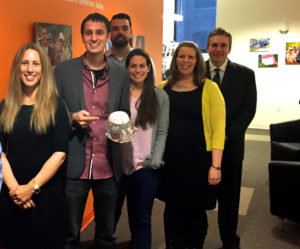The other side of so-called “Big Data” in oncology – beyond the use in patient care that The New York Times article focuses on – is its utility in cancer research.
Big Data (sometimes referred to in medical research as “bioinformatics”) is, in many ways, the foundation for “Precision Medicine” – a topic we’ve discussed before, which demands sophisticated platforms to share, capture, and mine data on tumor genomics. This is particularly true for rare diseases such as brain tumors, where pieces of important information needed to conduct research are scattered across the different research institutions around the globe.
Take this recent article from the biomedical research-focused news outlet GenomeWeb on the “Precision Medicine Initiative,” announced by President Obama in his 2015 State of the Union, which addresses how this massive undertaking will utilize patient data and open data to achieve its goals:
The $215 million initiative seeks to leverage genomics, informatics, and health information technology to accelerate biomedical discoveries and enable personalized medicine approaches for the diagnosis and treatment of diseases. Of the $215 million in funding that Obama seeks in his FY 2016 budget, $130 million would go toward creating a national research cohort of about 1 million people, whose biological data, as well as environmental, lifestyle, and behavioral information, will be shared with qualified researchers.


